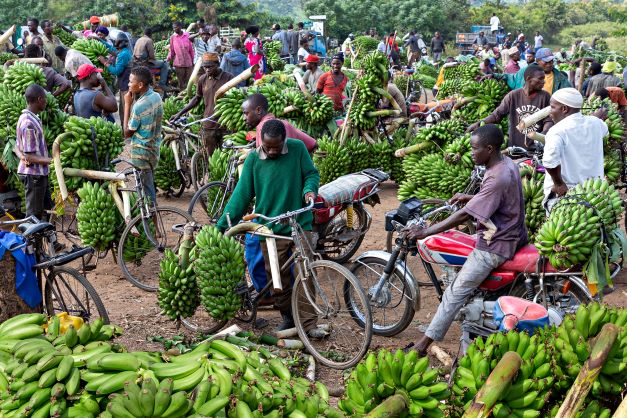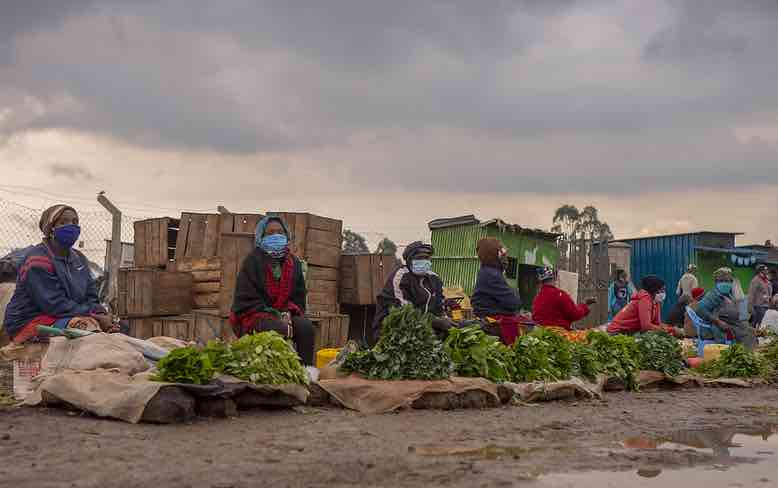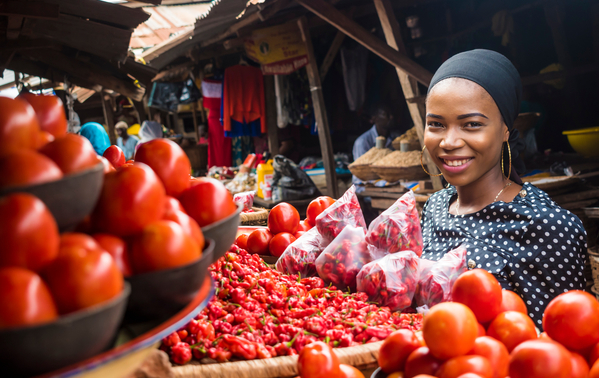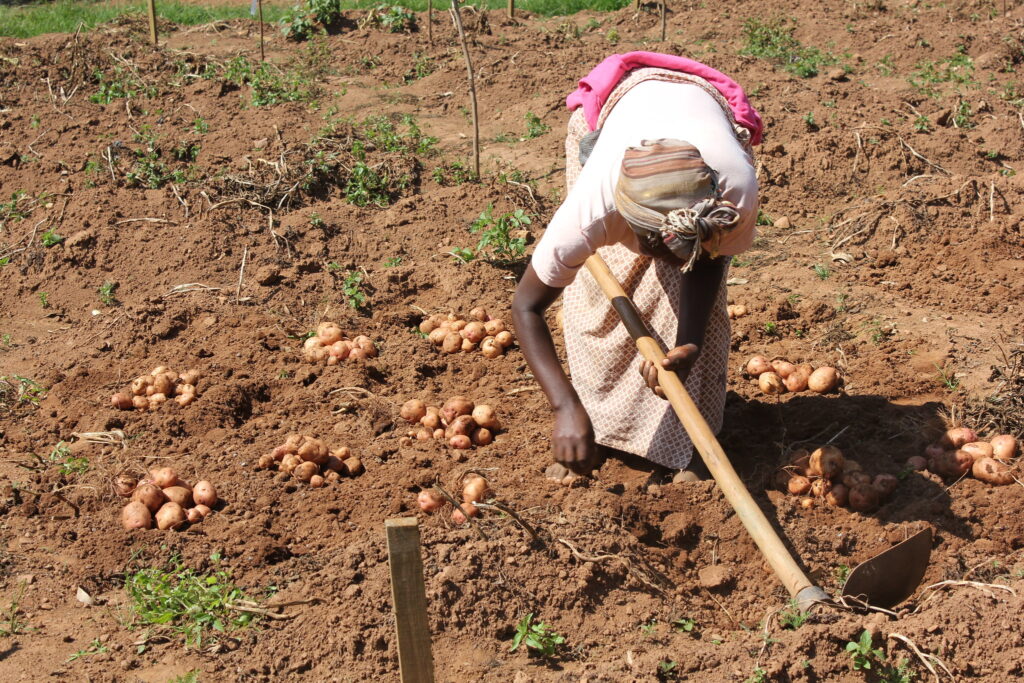December 05, 2024
The International Food Policy Research Institute (IFPRI), the CGIAR Initiative on NEXUS Gains, and Uganda’s National Agricultural Research Organization (NARO) jointly address gendered constraints to soil health management to support the implementation of the Nairobi Declaration on Fertilizer and Soil Health, the 10-year African Fertilizer and Soil Health Action Plan, and the UNCCD objective of sustainable land management and land degradation neutrality.
Washington DC and Kampala, December 5, 2024: Soil degradation, mainly caused by soil erosion and nutrient depletion, is a key factor undermining agricultural productivity, food security, and livelihoods in low- and middle-income countries. Soil degradation is a key problem in Uganda, which has seen growing soil health challenges. To address this issue, IFPRI, the CGIAR Initiative on NEXUS Gains, and Uganda’s National Agricultural Research Organization (NARO) have initiated a new round of a long-term, gender-disaggregated soil health survey in Uganda. This survey aims to understand the role of tenure security and plot decision-makers in soil health outcomes. It identifies differences in soil health between plots managed by women farmers and men farmers; as they are the ultimate decision-makers for soil health outcomes. The results help develop targeted solutions that consider both soil health parameters and the gender of the farmer managing soil health. The survey also collects new information on women’s agency and land rights, topics that are currently under discussion at the UNCCD COP16 and are integrated in Africa’s Fertilizer and Soil Health Action Plan.
Building on data collected in 2003 and 2013, this survey offers a 20-year perspective on soil health changes in Uganda. “Between 2003 and 2013, we found a decline in both fertilizer and organic input application, worsening soil erosion, especially on women-managed plots, and unsustainable depletion of nitrogen, potassium and phosphorus on both women- and men-managed plots,” said Crammer Kayuki Kaizzi, Senior Research Officer at the National Agricultural Research Organization of Uganda, who also noted that “Input use needs to be substantially increased to reverse the current dangerous soil degradation trend and more sustainable soil management practices are needed.” This is particularly necessary as climate change accelerates soil degradation, directly affecting crop yields.
The data from this survey, which incorporate both detailed farm-level socioeconomic and land management data as well as biophysical plot-level soil sampling implemented by Uganda’s National Agricultural Research Laboratories (NARL) under Uganda’s NARO, will be included in the country’s State of Environment Report produced by the National Environment Authority (NEMA) and other information dissemination pathways, ensuring that the findings will reach government and private sector actors.
“IFPRI and CGIAR are excited to be part of this project with NARO. Identifying measures that improve women’s access to soil health resources and close the soil health and crop yield gap between plots managed by women and men is critical,” said Claudia Ringler, Director of the Natural Resources and Resilience Unit at IFPRI and co-lead of the CGIAR Initiative on NEXUS Gains.
The findings of the survey, which will be published in the first half of 2025, will contribute to programs integrating gender and youth into soil health strategies across Africa by informing the 2023-2033 African Fertilizer and Soil Health Action Plan, which aims at “reversing soil degradation, increasing fertilizer consumption and efficiency, accelerating inclusive agricultural transformation, and ending hunger, malnutrition and poverty on the continent.” The data will also support UNCCD Strategic Framework strategic objective 1 on promoting “sustainable land management and contribute to land degradation neutrality.”
The International Food Policy Research Institute (IFPRI) provides research-based policy solutions to sustainably reduce poverty and end hunger and malnutrition. IFPRI’s strategic research aims to identify and analyze alternative international and country-led strategies and policies for meeting food and nutrition needs in low- and middle-income countries, with particular emphasis on poor and vulnerable groups in those countries, gender equity, and sustainability. It is a research center of CGIAR, a worldwide partnership engaged in agricultural research for development. www.ifpri.org
The CGIAR Initiative on NEXUS Gains works at the critical intersection of food, energy, and water security while preserving the ecosystems underlying food systems in selected transboundary river basins including the Nile River Basin. Improving soil health requires energy resources and, in turn, improves soil water capacity and food security. https://www.cgiar.org/initiative/nexus-gains/
The National Agricultural Research Organisation (NARO) is a public agency of the Ministry of Agriculture, Animal Industry and Fisheries (MAAIF) with a national mandate to coordinate and oversee all aspects of agricultural research in Uganda. Established by Act of Parliament of 2005 as a corporate body. NARO comprises a Governing Council, a Secretariat and 16 Public Agricultural Research Institutes (PARIs) spread across the country representing the diverse climatic conditions. NARO is principally mandated to undertake research in all aspects of agriculture including crops, livestock, fisheries, forestry, agro-machinery, natural resources and socioeconomics. https://naro.go.ug/
Media inquiries:
Evgeniya Anisimova (IFPRI, Washington DC): e.anisimova@cgiar.org
Kayuki Kaizzi (NARO, Uganda): kckaizzi@gmail.com
Source: ifpri.org




